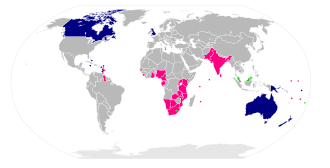Understanding the Role of Commonwealth Countries

Introduction
The Commonwealth of Nations, a political association of 56 member states, most of which are former territories of the British Empire, plays a crucial role in international relations today. Understanding the importance of Commonwealth countries is vital as they promote democracy, human rights, and economic growth. With over 2.4 billion citizens, the Commonwealth provides a unique platform for cultural exchange and cooperation.
Key Events and Recent Developments
In recent years, the Commonwealth has focused on addressing global challenges including climate change, promoting inclusive economic growth, and enhancing sustainable development. The Commonwealth Heads of Government Meeting (CHOGM), held every two years, is a significant event where leaders gather to discuss pressing issues and share innovative solutions. The most recent CHOGM was held in Kigali, Rwanda in June 2022, where leaders discussed fostering resilience in a post-pandemic world and addressing the challenges posed by climate change.
Commonwealth Countries and Their Contributions
Commonwealth countries are diverse, ranging from populous nations like India and Nigeria to smaller states like Malta and Belize. This diversity enriches the Commonwealth, allowing for a wealth of perspectives and experiences. For example, countries such as Canada and Australia are known for their robust economies and stable political climates, while nations like Kenya and Bangladesh offer unique insights into emerging markets and development challenges.
Trade and economic collaboration are key pillars within the Commonwealth framework. The Commonwealth Heads of Government continue to strengthen ties, with initiatives aimed at increasing intra-Commonwealth trade by 50% by 2030. Furthermore, the Commonwealth Youth Programme advocates for the development of younger generations, recognizing them as pivotal to the future of their nations.
Conclusion
The significance of Commonwealth countries extends beyond mere historical ties; they embody a commitment to shared values and cooperative progress. With an emphasis on unity, these countries are positioned to address global issues collectively, fostering a spirit of collaboration and shared responsibility. As the world continues to change, the Commonwealth remains relevant, guiding its member states toward a more inclusive and sustainable future. For readers, understanding the dynamics within Commonwealth countries highlights the potential for international collaboration and the importance of collective action in confronting global challenges.









